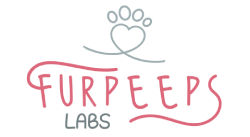by Michael Evans February 12, 2024 10 Comments
Introduction
Did you know that your pet is a microbial haven? While not entirely made of bugs, the average cat or dog has a similar number of microbial cells as it does cells in its entire body. Most of these microbes reside in the mouth and gut, playing a crucial role in digestion and contributing to various bodily functions.
Understanding the Gut Microbiome
This community of organisms within the digestive tract is known as the gut microbiome, numbering in the trillions. The majority are harmless, categorized as 'good' bacteria, aiding digestion, supporting the immune system, and even influencing brain health. However, there are less desirable bugs, such as disease-causing bacteria. The key is maintaining a balance, preventing 'bad' bacteria from overpowering the 'good' ones.
Role of the Gut Microbiome
The gut microbiome is vital for essential health processes, including food digestion, vitamin production, and the transformation of indigestible fiber. Some compounds produced by bacteria are crucial for health and cannot be produced by the body itself. Additionally, the pet microbiome plays a crucial role in the immune system and overall health.
Factors Affecting Your Furpeep's Microbiome
Several factors, such as diet, lifestyle, age, and diseases, can impact the health of your pet's microbiome. Diseases affecting the digestive system, like gum disease, and gastroenteritis, can lead to dysbiosis, altering the bacterial balance and causing secondary health issues. Treatments like antibiotics prescribed by vets can further disrupt the microbiome, potentially worsening gut diseases.
Ongoing Research and Influences
While much remains unknown about the microbiome, ongoing research reveals its importance. For instance, the preparation of a pet's diet significantly influences the health of their gut microbes, with notable differences between pets fed dry foods and those on fresh cooked or raw diets (Hooda et al., 2012). Other key factors such as imbalances in the oral microbiome can contribute to bad breath, gum disease and tooth loss.
Looking to the Future
Despite the mysteries surrounding the pet microbiome, it is evident that these microbes hold keys to health and well-being. Analyzing them has the potential to revolutionize the future of pet healthcare.
Reference:
Hooda, S., Vester Boler, B. M., Kerr, K. R., Dowd, S. E., Swanson, K. S. (2012). The gut microbiome of kittens is affected by dietary protein:carbohydrate ratio and associated with blood metabolite and hormone concentrations. The British Journal of Nutrition, 109(9), 1637–1646. doi:10.1017/S0007114512003689.
June 23, 2025
Muchas gracias. ?Como puedo iniciar sesion?
June 23, 2025
JDxwzrcMfgHXpkmW
June 23, 2025
uQIVzpMDHelURrkt
June 23, 2025
TZMqWvthO
June 23, 2025
ZMQUGuFsAKCER
June 23, 2025
JbdzZAnPS
June 23, 2025
fXPgElFoJNBIqjsm
June 23, 2025
AtOiMLVyTF
June 23, 2025
oVtjSKeqZdmlRu
June 23, 2025
uReANIMGvc
Comments will be approved before showing up.
by Amanda Calazans July 10, 2025
It's time to incorporate daily oral care for your pets habits. We live in close contact with our pets, sharing more than just our homes—we share microbiomes. Brushing your pet’s teeth daily is essential to their health and yours.
by Amanda Calazans June 17, 2025
Dental health is one of the most overlooked — and most expensive — aspects of pet care. By age 3, most dogs and cats already show signs of dental disease. Brushing isn’t easy for every pet parent. That’s why we created Smarter Water: an all-natural, tasteless powder that transforms your pet’s water into a daily dental routine. Fresher breath, healthier gums, and fewer surprise vet bills — all with every drink.
by Michael Evans February 12, 2024 9 Comments
Our 'Give Back' Program - We donate 5% of our profits to local organizations supporting pets in need.
Are you a Pet retailer or Practitioner? Contact us for Free Samples @ info@furpeepslabs.com
© 2026 Furpeeps Labs.
The information contained within this site is not intended as a substitute for professional medical or veterinary advice. If your pet has, or you suspect your pet has any medical condition you are urged to consult your veterinarian. These statements have not been evaluated by the Food and Drug Administration. The use of the logos are copyrighted by each respective entity. *Results May Vary.

Michael Evans
Author
Pet health care expert, Shark Tank Participant, Scientist, Serial entrepreneur, Stanford trained Bio-design scientist, Stanford StartX mentor, a prolific inventor, and Pet parent.